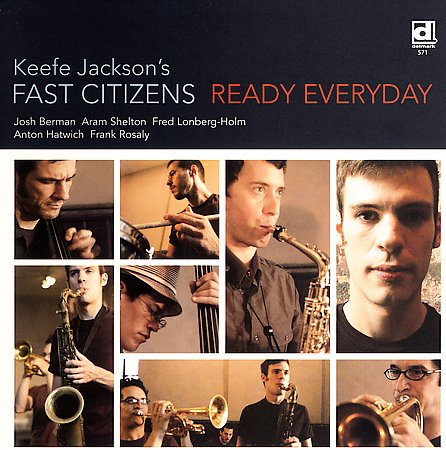Review by Brad Walseth
When in 1959, in his groundbreaking "The Shape of Jazz To Come," Ornette Coleman freed his fellow jazz players from the shackles of chordal structure, he influenced entire generations of musicians who had grown tired of having to follow sets of predetermined chord changes with built-in harmonies and predetermined paths to resolution. Often this standard song architecture had been played to death, leading to stale musicians who were bitter and bored with what they were forced to play, and who lamented not having the freedom to take their personal vision of the music into realms denied them as out of bounds by convention.
The term "free jazz" can be misleading, however, as often there is a structure of sorts. Coleman's revolutionary elimination of the chordal instruments in the band unit (i.e. piano or guitar) meant that songs were often constructed around melodic themes that served merely to imply the underlying chords. Liberating and exhilarating to some listeners, and an anathema to many who prefer the traditional, this approach still finds a welcome home in Chicago's underground scene, with groups like the Vandermark 5, the many AACM projects and the Chicago Underground collective finding their own variations of free self expression within the group dynamic.
Tenor saxophonist Keefe Jackson's "Fast Citizens" honed their playing together with a year-long steady gig at The Hideout, and their heightened interplay, musicianship, and commitment to free improvisation elevates their work above what could become musical anarchy. Mostly written by Jackson, the "Citizen's" interesting compositions revel in their freedom, yet never forget Duke's credo that the music "swing."
This album features Jackson's broad tenor, supplemented by other strong soloists in cornetist Josh Berman and alto saxophonist Aram Shelton, backed by agile drummer Frank Rosaly and round-toned bassist Anton Hatwich's avant garde groove pulsations. Jackson himself admits to immersing himself in Klezmer music, and some of the intervals in his lines reflect an Eastern European flavor.
The wild card in the mix is the addition of cellist Fred Lonberg-Holm whose string gyrations bring a different element to the overall sound. In fact, one of the record's highlights is Longberg-Holm's hair-raising electronically effected cello, which rises and falls dramatically in the opening of the haunting "Signs," sounding almost like the electric guitar of David Torn or King Crimson's Robert Fripp.
The music herein ranges from swaying and burning (the title track) to the moody and atmospheric ("Band Theme"). Shelton contributes "Blackout" which hints somewhat at Miles Davis' "Nefertiti." This number displays Longberg-Holm playing pizzacato in a piece that also offers up long strands of horn lines rising as though they were smoke in a swirling wind, until the altoist's incendiary solo burns into ashes.
Throughout the recording, the players communicate with each other confidently, creating collective musical art seemingly in response to one another. "Pax Urbanum" plays with the urban sounds of car horns, while "Course" grooves mightily, with drummer Rosaly leading the charge and taking no prisoners. For listeners who enjoy their music on and sometimes beyond the edges, they may wish to grant full citizenship in their listening world to Jackson and his fellow travelers.
|

